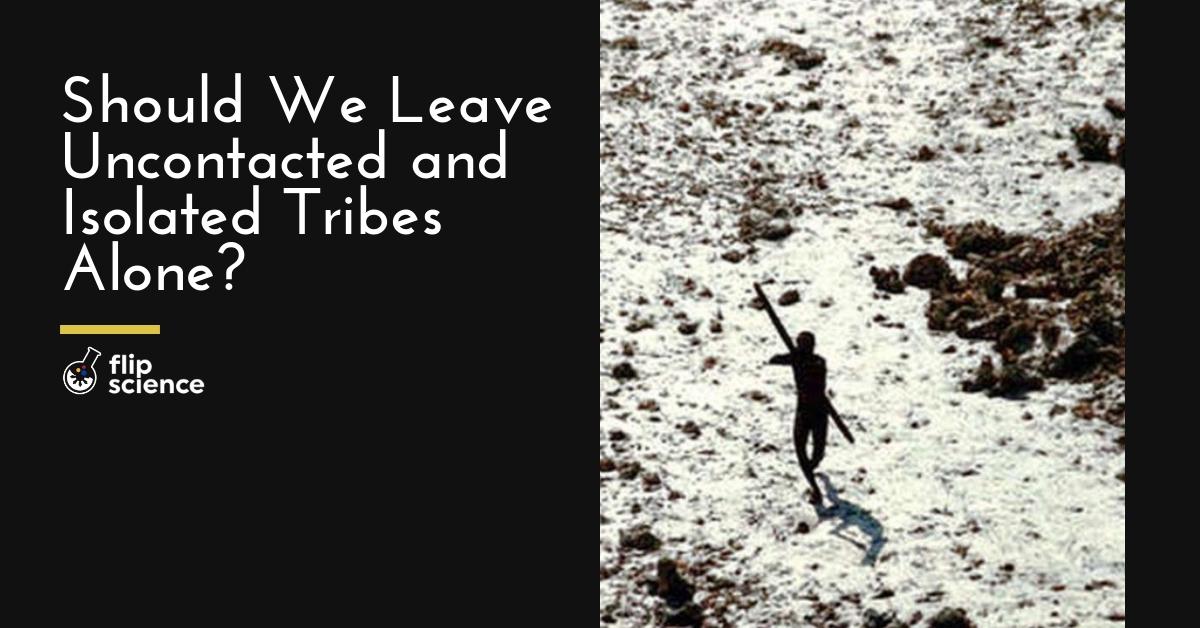• US missionary John Allen Chau sought to bring Christianity to the Sentinelese, an isolated tribe known for their vehement dislike of outsiders.
• As a result, the American was slain, and his body has yet to be recovered from North Sentinel Island.
• This tragic incident illustrates the numerous reasons why it may be better to just leave uncontacted tribes uncontacted.
Unless you’ve been living under a rock (or on an undisturbed island) for the past few days, you’ve likely heard about an American missionary named John Allen Chau and his ill-fated mission to introduce Christianity to an isolated tribe.
Despite existing regulations prohibiting anyone from contacting the tribes on the Andaman and Nicobar islands off the coast of India, Chau attempted to establish contact with the Sentinelese tribe last November 14. Though he was initially met with arrows, Chau tried a few more times. Days later, fishermen spotted natives dragging his corpse on the shore.
A thriving tribe
The Sentinelese tribe is one of the few uncontacted or isolated tribes left on the planet. The tribe has occupied North Sentinel Island for centuries, purposely avoiding contact with the outside world and thriving well enough on their own. Their language and culture are largely mysterious to us, and their actual population size is unknown.
In fact, there’s only one thing we know for sure about them: They really, really hate outsiders.
Twelve years ago, they killed two fishermen who reached the island by accident. Aside from that, records indicate that they’ve come into contact with outsiders at least 10 other times. It’s no surprise that the Indian government respects the tribe’s wishes to remain uncontacted.
But why is this such a big deal? Should we really stay away from the Sentinelese and other uncontacted tribes? Isn’t it our duty to bring them up to speed with the rest of the world and improve their way of life?
The reality is that it’s not that simple. In fact, the mere presence of outsiders on their territory places these tribes in jeopardy, for a number of reasons.
1. Diseases
The Indian government has decided not to retrieve Chau’s body from the island. It is highly likely that the tribe will bury Chau on the shore, like the bodies of the dead fishermen in 2006. This decision makes sense, but it also highlights one of the biggest reasons why Chau shouldn’t have been there in the first place.
Having lived in isolation for practically their entire lives, uncontacted tribes do not possess immunity to the bugs, viruses, and diseases we unwittingly carry. In other words, contacting them literally endangers them. There are numerous instances in history where tribe populations were greatly diminished or even halved, simply because they couldn’t handle the sicknesses that missionaries, pirates, and other outsiders brought with them. One can only imagine the bacteria and bugs on Chau’s corpse — and hope that they won’t harm the tribe’s health.
As Sydney Possuelo, the former head of the Fundação Nacional do Índio (FUNAI)’s Department of Unknown Tribes in Brazil, once put it, isolated tribes get only three things from outsiders: desecration, disease, and death.
2. Environmental damage and resource depletion
More often than not, contacting an isolated tribe usually leads to the abuse and destruction of that tribe’s habitat and resources.
When governments don’t establish strict laws to protect isolated tribes and their territories, nothing stops major corporations from conducting mining and logging operations there, which inevitably leads to the exploitation and depletion of natural resources. Unprotected tribes also tend to be the favorite targets of pirates and drug traffickers.
3. Psychological trauma
When British naval officer Maurice Vidal Portman landed on the islands in the late 1800s, he and his crew didn’t just bring diseases with them. They also took an elderly couple and four children with them to study, which resulted in the couple’s death. They sent the children back with gifts, with Portman publicly expressing deep regret for his actions.
Portman’s account is just one of many examples of how outside contact harms isolated tribes. It’s not a stretch to think that these experiences taught tribes to beware of outsiders. It may also be what stops them from making contact with the rest of the world. “There is no such thing as a group that remains in isolation because they think it’s cool to not have contact with anyone else on the planet,” said anthropologist Kim Hill from Arizona State University. Hill and many others believe that fear primarily motivates these tribes to stay isolated — and, as history has demonstrated time and again, with good reason.
4. Cultural exploitation and tribal voyeurism
One may think that contacting these tribes helps them “catch up” with us. Think about it, though. Isn’t it arrogant to act like we know better than them, or to presume that their mere existence warrants our interference? If they choose to stay isolated, shouldn’t we respect that?
Furthermore, by suddenly introducing them to the modern world, we are also turning them into tourist attractions. Travelers wanting to immerse themselves in a genuinely indigenous experience will likely seek out these tribes. This not only disrupts their societal structure and operations, but also sets them up for cultural exploitation.
In Chau’s final letter to his family, he acknowledged the possibility that he would die. He also explicitly requested them not to retrieve his body. Had Chau exhibited the same foresight in planning his mission, perhaps he would not have met such a grisly end.
As it is, his story serves as a cautionary tale for others seeking to follow in his footsteps — and a reminder to humanity that sometimes, just because we can doesn’t mean we should.
Cover photo: BBC News
References
- http://www.bbc.com/future/story/20140804-sad-truth-of-uncontacted-tribes
- https://qz.com/1478899/john-allen-chaus-body-wont-be-repatriated-from-north-sentinel-island/
- https://www.bbc.com/news/world-asia-india-46286215
- https://www.bostonglobe.com/opinion/2018/11/27/missionary-didn-die-from-tribesmen-arrows-was-killed-his-own-arrogance/QSblpdBocWWSs3HeS94TYP/story.html
- https://www.survivalinternational.org/articles/3130-sydney-possuelo-experiences-of-contact
- https://www.theguardian.com/environment/andes-to-the-amazon/2015/jul/07/scientists-worlds-most-isolated-tribes-decisions
- https://www.thisisinsider.com/sentinelese-tribe-contact-world-2018-11
- https://www.usatoday.com/story/news/nation/2018/11/26/beyond-north-sentinel-uncontacted-isolated-tribes/2117381002/
Author: Mikael Angelo Francisco
Bitten by the science writing bug, Mikael has years of writing and editorial experience under his belt. As the editor-in-chief of FlipScience, Mikael has sworn to help make science more fun and interesting for geeky readers and casual audiences alike.







